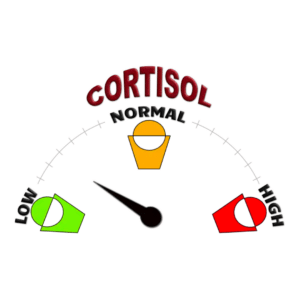Registered nutritional therapy practitioners practice nutritional therapy based on the Functional Medicine model. Their attention is focussed on the client, rather than any illness they may have. The emphasis is on lifestyle, diet and supplements as the primary intervention, and, if necessary, functional testing (such as conventional blood tests or more sophisticated functional tests) is considered to assist registered nutritional therapy practitioners in identifying the underlying cause of symptoms. Clients are encouraged to stick to certain basic principles of optimal health, to safeguard themselves against health problems and serious disease.
The biological uniqueness of a client is appreciated by registered nutritional therapy practitioners, who look at the whole person and not an isolated set of symptoms.
The biological uniqueness of a client is appreciated by registered nutritional therapy practitioners, who look at the whole person and not an isolated set of symptoms. They explore the underlying cause of an illness, rather than naming the disease and blaming the symptoms on the disease. If a client is depressed, for example, they will look into what’s going on in his gastrointestinal tract (gut), because research is showing that problems in a person’s gut can directly impact his mental health, leading to issues like anxiety and depression.1
If a client has acne, whereas conventional medicine will typically treat it with antibiotics, registered nutritional therapy practitioners recognise that there is solid scientific evidence showing that diets which are high in sugar and refined carbohydrates are the root cause of acne, and that other major factors to consider may be dairy, gluten and stress.2,3

Compared with conventional medical practitioners, registered nutritional therapy practitioners spend a lot more time with clients. During a nutritional therapy session, a detailed history is taken to determine a client’s antecedents, or factors in his past (such as a parent’s or grandparent’s disease, or his own long-standing antibiotic use) that may pre-dispose him to illness or pattern of disease. Discussions take place relating to possible triggers or factors that may provoke the symptoms and signs of illness – for example, gluten is a trigger for people with celiac disease, and milk is a trigger for someone who has lactose intolerance. Factors that contribute to ongoing dysfunctional responses are looked into – for example, a high-refined sugar diet may lead to imbalanced blood sugar levels giving rise to low energy levels.
Registered nutritional therapy practitioners emphasise that leading a common sense, healthy lifestyle is a client’s best bet to producing a healthy mind and body, and increasing his longevity.
Registered nutritional therapy practitioners work with clients during their nutritional therapy sessions to negotiate a health optimisation plan that includes a tailored nutritional protocol, possible specialised tests, and supplements. If tests are suggested, once the practitioner has the results, they will then meet again with the client to discuss the results, and, if necessary, tweak the protocol. Clients are encouraged to play an active part in improving their health and to be a partner with the registered nutritional therapy practitioner in the process. Client practitioner communication is an integral part of a registered nutritional therapy practitioner’s clinical practice.
Certain basic principles of optimal health are always prescribed. These are:
- drinking plenty of filtered water;
- eating a healthy diet that’s right for the client, making sure he keeps his insulin levels low;
- exercise;
- stress management;
- lots of sunlight;
- eating healthy fat;
- limiting toxic exposure;
- eating a wide variety of plant food;
- eating healthy sources of protein;
- getting plenty of sleep.
Registered nutritional therapy practitioner’s emphasise that leading a common sense, healthy lifestyle is a client’s best bet to producing a healthy mind and body, and increasing his longevity.
To book a nutritional therapy consultation with Andy, get in touch today.
REFERENCES:
- Everensel A, Ceylan M (2015). The gut-brain axis: the missing link in depression. Clinical Psychopharmacology and Neuroscience 13(3): 239-244;
- Katta R, Desais S (2014). Diet and Dermatology. The role of dietary intervention on skin disease. Journal of Clinical Aesthetic Dermatology 7(7): 46-51
- Chen Y, Lyga J (2014). Brain-skin connection: stress, inflammation and skin ageing. Inflammation allergy Drug Targets 13(3): 177-190








